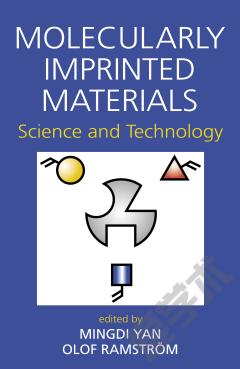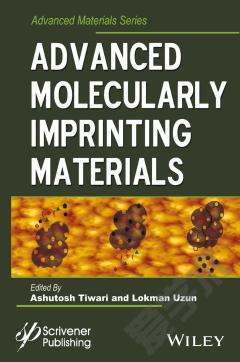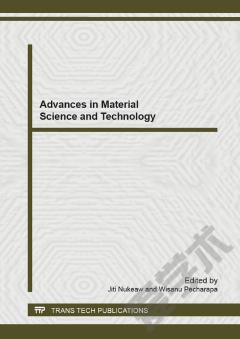Molecularly Imprinted Materials —— Science and Technology
----- 分子印迹材料
Molecular Imprinting - An Introduction A Brief History of the "New Era" of Molecular Imprinting The Non-Covalent Approach The covalent and Other Stoichiometric Approaches The Semi-Covalent Approach The Use of Metal Coordination for Controlling the Microenvironment of Imprinted Polymers Synthesis and Selection of Functional and Structural Monomers Combinatorial Approaches to Molecular Imprinting Surface Imprinting Scaffold Imprinting Imprinting in Inorganic Matrices Post Modification of Imprinted Polymers Molecular Imprinting Using Hybrid Materials as Host Matrices Thermodynamic Considerations and the Use of Molecular Modeling as a Tool for Predicting MIP Performances Selectivity in Molecularly Imprinted Matrices Binding Isotherms Molecularly Imprinted Polymer Beads Molecularly Imprinted Polymer Films and Membranes Micromonoliths and Microfabricated Molecularly Imprinted Polymers Chromatographic Techniques Capillary Electrophoresis Metal Ion selective Molecularly Imprinted Materials Solid Phase Extraction and Byproduct Removal Applications of Molecularly Imprinted Materials as Enzyme Mimics Application of MIPs as Antibody Mimics in Immunoassays Molecularly Imprinted Polymers as Recognition Elements in Sensors: Mass and Electrochemical Sensors Molecularly Imprinted Polymers as Recognition Elements in Optical Sensors
{{comment.content}}








 京公网安备 11010802027623号
京公网安备 11010802027623号